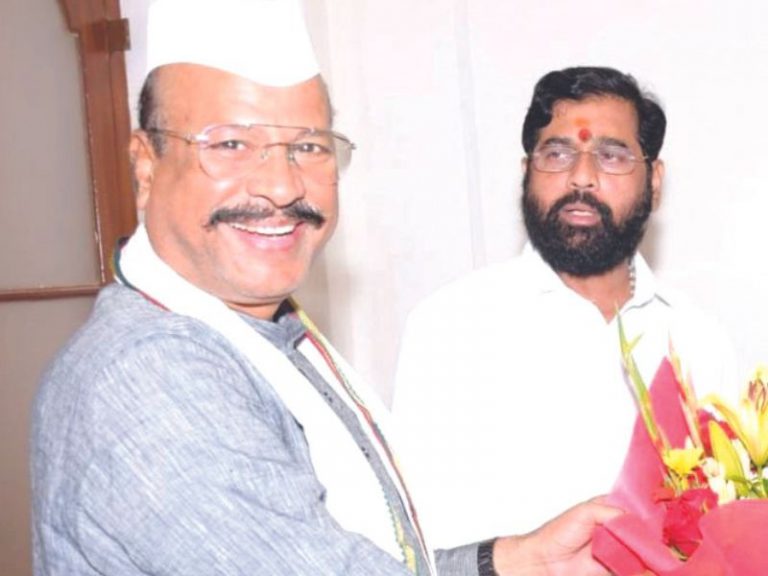Maharashtra: Suffer little children
Dipta Joshi (Mumbai)

Eight months after large-scale tampering and malpractices were reported in the Teachers’ Eligibility Test (TET) 2019-2020 written by 3.43 lakh aspirant school teachers, the Maharashtra State Council of Examinations (MSCE) disqualified 7,880 candidates who wrote the exam and banned them from writing any future TETs. In the list of proscribed aspirant primary school teachers made public on August 4, are the names of three daughters and son of Abdul Sattar, Maharashtra’s agriculture minister.
A mandatory exam under the Right to Education Act, 2009 for graduates aspiring to teach in government schools, TET was introduced in Maharashtra in 2013 when the RTE Act was belatedly implemented statewide. Candidates aspiring to teach in Maharashtra’s 71,426 government-administered and government-aided primaries/elementaries (classes I-VIII), are required to pass TET with a minimum 60 percent average score.
In the large and rapidly expanding upwardly mobile urban and periurban middle class of Maharashtra (pop.125 million) — and indeed countrywide — landing a government school teacher’s job is a big deal. Starting salaries of government school teachers prescribed by official Pay Commissions which determine the remuneration of Central government employees (including school teachers) serve as benchmarks for state governments, and are handsome. Especially when compared with teachers’ remuneration in the country’s estimated 400,000 budget private schools (BPS).
According to Prof. Geeta Kingdon, chair of education economics and international development at University College, London, in rural hamlets of hinterland India, government school teachers are numbered among wealthiest citizens and enjoy high social status as their monthly salaries could be 30 multiples of BPS teachers remuneration. Moreover, within the country’s six million government school teachers’ community there is little accountability for children’s learning outcomes or their own classroom attendance. The authoritative Annual Status of Education Report (ASER) published by the Pratham Education Foundation reports that learning outcomes of government school children countrywide are declining year-by-year. Moreover, several studies have documented that 25 percent of all government school teachers are absent from classes every day.
Little wonder the number of graduates from obscure undergrad colleges signing up for TET is rising every year. In 2018, 1.73 lakh candidates wrote TET, while in 2020, the number of candidates — most of whom are employed in BPS, writing TET — more than doubled to 3.43 lakh. However, given the weak school and undergrad education of the great majority of TET candidates, the exam has always recorded poor pass percentages. In 2018, of the 1.73 lakh candidates in Maharashtra who wrote TET, only 1,679 passed. In TET 2020, of the 3.43 lakh who wrote the exam a mere 16,705 passed.
Unsurprisingly, with the mad scramble for government school employment, the education sector has become the happy hunting ground of corrupt officials, agents and coaching school professionals. Moreover with TET going online, officials of software companies have also become embroiled in TET scams and scandals.
In November 2020, the Pune police during a raid on the city-based GA Software Technologies Pvt. Ltd, an external contractor which conducts recruitment exams on behalf of several government departments, unearthed fake identity cards and exam hall tickets displaying TET candidates’ names in the home of the company’s director Pritish Deshmukh. Further investigations revealed large-scale tampering in TET 2018 and 2020 exams. Over the next few days, the Pune police’s cyber cell arrested 22 people including Tukaram Supe, former commissioner of MSCE, IAS officer Sushil Khodwekar and Abhishek Sawrikar, an external consultant of the state government’s education ministry, apart from Pritish Deshmukh.
However, with the new Shiv Sena (Shinde)-BJP government sworn-in on June 30, having appointed Abdul Sattar, the state’s agriculture minister despite his progeny being named, shamed and disqualified in the TET 2020 scandal, and main accused Tukaram Supe being out on bail since May 2022, there are doubts whether the new Shinde-BJP government will thoroughly investigate the scandal.
“We don’t believe the investigation into TET malpractices will reach its logical conclusion since the case has already been weakened with Tukaram Supe being granted bail. Now, with the agriculture minister’s children involved in this scam, there will be added pressure to delay justice. The government should have kept Sattar out of the cabinet to ensure an impartial investigation. We cannot have teachers with low ethical values teaching our children. Only stringent action against all accused will be a deterrent for the future,” says Rajesh Pandya, vice president of the Mumbai-based Teachers Democratic Front (TDF, estb.2004).
With judicial stay orders against recruitment and appointment of government primary school teachers stretching back to 2012, a mere 8,000 teachers have been appointed in Maharashtra’s government primaries during the past decade. As a result, there are 40,000 teacher vacancies in the state’s rural (zilla parishad) government schools. Meanwhile, despite the RTE Act guidelines stipulating a teacher-pupil ratio of 1:30, government schools have a teacher-pupil ratio of 1:50. Moreover according to ASER 2019, only 40 percent of class III children can read and comprehend class I textbooks.
Ultimately, price of corruption is paid by the weak and vulnerable at the base of the country’s iniquitous socio-economic pyramid. In this case, children.

















Add comment